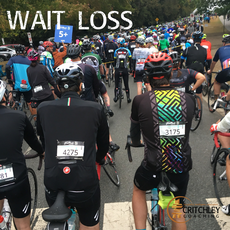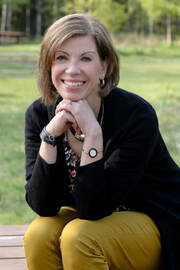
On Tuesday of this week, I decided to test my now un-cast foot in a yoga class. I’ve been missing Mona and her incredible classes since the summer. So has my body. I have careful instructions not to push things too far. Although the bones are healed, the tendons and ligaments have been lulled into a false sense of strength by being constantly supported by a tight-fitting shoe. And yet, enough was enough. So, on an unusually warm-for-this-month morning, Jim and I headed over for our class.
When we came out of the building, the sun was shining brilliantly and had we not heard the forecast for more cold and snow, we could have been tricked into thinking Balzac Billy was right in predicting an early spring. Suddenly transported back many years, I surprised myself by saying, ‘Touch of spring in the air, Mr. Critchley’.
When I first started teaching, at the ‘old Red Deer Lake School’, I was the youngest teacher on staff. My first classroom was a windowless room, but by my third year I had a room that overlooked the playground, and the picturesque, local country church. Each day after school, I’d sit at my desk and plan my new lessons for the upcoming days. While I sat there, every year starting in January, our newest custodian, Kurt, would come into my classroom, walk up to the front of the room, head over to the window, look out over the playground to the church and say gently, ‘Touch of spring in the air today, Mrs. Critchley’. And I would reply, ‘I think there is, Kurt’. This became our daily ritual. Every day Kurt would come in to my room. Every day we would say the same thing.
This little ritual went on for years.
Kurt and I weren’t friends. I did not know his last name. He likely did not know my first name. He was what I thought to be a middle-aged custodian, and I, of course was a young teacher. We were both relatively new to the school and its community. And yet, every day we made this simple, kind connection.
Several years into our after-school routine, Kurt came in and carried out his part of our ritual: ‘Touch of spring in the air today, Mrs. Critchley’ he said. And I replied, ‘I think there is, Kurt’. I was expecting our usual comfortable silence as he would continue looking out the window for signs of spring and I would continue looking at the papers on my desk, when he surprised me by saying, ‘Critchley is not a very common name.’ To which I replied, ‘No, it really isn’t’.
Kurt went on to tell me that he once knew a Jack Critchley, when he worked in St. Catharines, ON as a school custodian.
That got my attention. Jack Critchley was my husband Jim’s father’s name. Jim’s dad had died about fifteen years before this conversation and he had been a principal at McArthur school in St. Catharines. As Kurt and I talked, we discovered that the Jack Critchley he had known and Jim’s dad, were the same person. More than that, when Kurt had been the custodian at McArthur School, and Jack Critchley, Jim’s dad had been the principal, Kurt had been having trouble providing for his family. Jim’s dad helped him. He helped him find a home to rent, he helped him with money for the rent, and he helped him with other things until he could get back on his feet. Kurt had never forgotten this kindness. I told him I would tell Jim and his mom, and that they would be so pleased to hear about this.
I am guessing that when Kurt was struggling many years ago, when he worked in Jack Critchley’s school, he was not feeling a touch of spring in the air. If I were a betting girl, I’d put my money on the fact that it must have felt a lot more like a long cold winter, with no end in sight. Somehow, and I do not know this part of the story, I imagine Jack and Kurt got to know each other, and over time, Jack realized the situation Kurt was in. Jack Critchley chose to bring a touch of spring to Kurt and his family’s’ life. Jim’s mom did not remember this happening when I told her, and the boys, Jim and his brothers, knew nothing of it. I guess that didn’t matter. We don’t need to see spring rain and sunshine, to know it has come.
In my early teaching years, when, like clockwork, Kurt would come into my classroom after school, most days there really never was any touch of spring in the January, or February or even March air. Most days the thermometer was dipping in the minus double digits. Many days a cold wind swept over the Rocky Mountains. Yet each day we stuck to our script. His gentle comment, ‘Touch of spring in the air today, Mrs. Critchley’. And my kind reply ‘I think there is, Kurt’.
It may not have felt like spring when Kurt came into the room but I could almost hear the tulips pushing through the soil by the time he left.
My inquiry for you this week is, ‘What touch of spring can I offer today?’
Elizabeth is a certified, professional Life and Leadership Coach, and the owner of Critchley Coaching. She is also the founder and president of the Canadian charity, RDL Building Hope Society. She works with corporations, non-profits and the public sector, providing leadership programs and personal coaching for individuals and teams. Contact Elizabeth to find out how to bring a touch of spring to your organization and life.





 RSS Feed
RSS Feed